At least that’s what one booking agent accused the band of doing, as they prepared to embark on a tour that would mark their return to live music and include more than a dozen states and 22 cities through February and March.
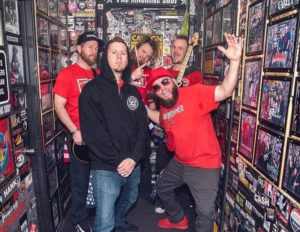
The Andrew W Boss crew pose for a photo during a tour stop at the Machine Shop, in Michigan.
The Utah-based Rap/Metal group wasn’t about to let the booking agent dampen their spirits. They responded on Instagram, saying: “Sounds like your mental health is not going so well out there. I suggest turning off the TV and going outside and living your life before it’s too late.” Ouch!
Band member Jon Flip Boss says he believes the booking agent is an odd man out. In other words, that he does not hold a majority opinion.
“I think most people are really excited about the tour and really optimistic for the future. I know we are,” said Boss.
I think most people are really excited about the tour and really optimistic for the future.”
But are most people excited and optimistic about the return of live music?
I’ve been to a few recent shows, and fans certainly seem to be appreciative. Actually, appreciative may not be strong enough a word.
Medicine for the soul

Royal Bliss played limited shows during the second half of 2020 through 2021.
Neal Middleton and his band, Royal Bliss, have been playing limited shows off and on since last June. When we spoke, Middleton told me how one fan literally burst into tears when, after six months of lockdowns, he finally got to see the band live.
“Live music is medication,” says Middleton. “People are social creatures and when we’re isolated, our souls shrivel up.”
Live music is medication…people are social creatures and when we’re isolated, our souls shrivel up.”
Dave Crespo, guitarist for the band Spirit Machines, would likely agree.
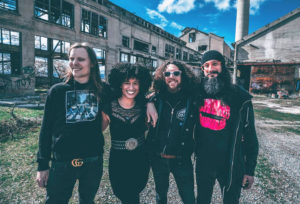
Spirit Machines on location at a recent video shoot.
“The people coming to shows right now are the most engaged audiences I’ve ever played to,” says Crespo. He goes on to relate how, during what he referred to as not one of the band’s best performances,” the fans were literally “going crazy” with delight.
Live music may indeed be medicine for the soul, so it follows that live music might also be an essential requirement for some. But while musicians may enjoy healing souls, there is a stronger motivation to play.
Being essential
Government bureaucrats have determined who is and who is not an essential worker. Like many, musicians have been deemed non-essential. This designation has been especially hard on full-time musicians and those who are self-employed and/or contract workers who are not eligible for unemployment.
In reality, all workers are essential when it comes to providing for the welfare and future well-being any individual and their family. Working is a basic human need…an instinct that cannot be canceled by some politician or government bureaucrat.
But is live music the only way for musicians to earn a living during the pandemic?
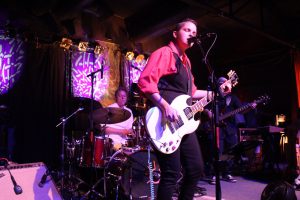
Live-streaming has helped Talia Keys get through the pandemic.
Musician Talia Keys says weekly live-streams have helped her financially and mentally survive the pandemic.
“We have to adapt,” say Keys. “We have to change. Change is the only constant. I have been able to pay my bills and take care of my diabetes and it has personally saved my depression.”
We have to change. Change is the only constant.”
Keys and her band, Talia Keys & The Love, were fortunate to have had a good amount of well-earned success leading up to the pandemic. A good fan base can bring in the eyes and ears that lead to live-stream dollars.
Is live-streaming the answer?
Michelle Moonshine has seen some success with live-streaming. Moonshine had been a recent contestant on NBC’s The Voice. Like Talia Keys, her fan base was in pretty good shape.
However, even with some successful live-stream events—including one amazing livestream that left her in tears—Moonshine says live-streaming is not enough.
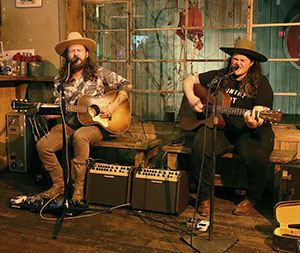
Michelle Moonshine & Husband Andrew Wiscombe perform at the Garage on Beck, Feb 14, 2021.
Moonshine and husband, musician Andrew Wiscombe, are raising three children. After not being able to pay the rent for a good part of the year, the couple found themselves in a hole and are still nowhere close to providing adequately for their family.
“Some artists don’t have to worry about everyday expenses like rent and feeding a family,” says Moonshine.”
Some artists don’t have to worry about everyday expenses like rent and feeding a family,”
To make matters more challenging for the couple, Wiscombe is unable to work a regular 9-to-5 due complications from a case of PTST he picked up while serving as a sniper in the Iraq war. As a result, the couple feel little choice but to gig in order to make ends meet.
Quality versus quantity
Unlike Keys and Moonshine, mot local musicians don’t have much of a fan base, so live-streams can be a tough sell.
At the beginning of the lockdowns, every local musician in the universe seemed compelled to livestream. The overall quality of many of these performances was disappointing—both in performance and production value.
For many potential fans, that initial experience tarnished the live-stream experience. We’ve all seen those live-streams where there would be one or two fans attending. Ultimately, the lack of fans made it hard for many musicians to monetize their livestreams.
We’ve all seen those live-streams where there would be one or two fans attending.
Some artists, however, have demonstrated that live-streaming can be successful even without a large fanbase. Studios like Pale Horse Sound demonstrated how live-streams—with high production values, a quality performance, and good marketing of course—can overcome the bad rap live-streaming attained early on.
Some bands even expanded the live-stream concept to include additional ways—beyond the music—to engage the audience. Giveaways, interviews and other exclusive content can help connect with the audience and make livestreams more entertaining.
Ultimately, live-streaming does have an exciting potential beyond the pandemic, but it just has not panned out for a majority artists.
…live-streaming does have an exciting potential beyond the pandemic, but it just doesn’t work for a majority artists.
Community at large
While a handful of Utah bands have been able to survive economic hardship by playing live, they also provide an economic benefit to the larger community.
Middleton is in a unique position of being in a band that also owns a venue. The Royal is a dinner club in Murray, and Middleton says their business employs many people who need financial help.
“Our employees are very appreciative that we’ve been able to put them to work,” says the Royal Bliss frontman. “Without live music, the club would not be able to help these families.”
Without live music, the club would not be able to help these families.”
Middleton also cites how employees of other clubs they’ve performed at recently—from servers to doormen—go out of their way to thank the band for giving them the opportunity to work.
Beyond individual workers, venue operators like S&S Presents scrambled to come up with creative and safe ways to offer live music. Many venue operators don’t offer food services, so their only revenue stream is live music. S&S created the bicycle cruise concert—an outdoor event which helped keep the business afloat and provided opportunity for employees and bands to put food on the table. We wrote about this and other creative live show formats last July, in Searching for the Sweet Spot of Live Concert Performance.
For many musicians and venues, there is a strong case for playing live music during the pandemic. However, this activity raised the ire of some outspoken musicians, causing a rift in the music community.
A divided music scene
The division has led to a lot of bad blood between some who play live and others who don’t. The rhetoric has been heated and some long-time music scene relationships have been taken to the woodshed.
Middleton made the astute observation of how unfortunate it is that, in a world divided by identity politics, one of the things that has always united people has been taken away.
…in a world divided by identity politics, one of the things that has always united people has been taken away.”
Keys has been vocal critic of musicians playing live music during the pandemic. In a recent post on Facebook, she stated that playing live was “dangerous behavior.”
“If you look at any big city that has thriving music scenes they aren’t having shows. That’s for a reason, ” says Keys, “Putting hundreds under the same roof with no masks and drinking leads to transmission.”
But how dangerous is it?
Recent studies have shown that restaurants are not the super-spreaders they were thought to initially be. Could it be that masking and social distancing alone were enough all along?
As a result of these studies, states like California and New York—that formerly had some of the strictest mandated lockdown policies—are now reopening restaurants.
This is great news for the local music scene. It’s a bitter pill, though, as the mandate reversal stokes the concern that expanding lockdowns—past the “two weeks to stop the spread”—was a huge blunder that may have caused the cure to be worse than the disease.
Other changes in policy have raised questions as well.
In one example, the CDC recently revised testing guidelines by lowering the cycle count, citing that previous guidelines resulted in too many false positives. The change in testing guidelines has already resulted in a significant drop in new cases, but it has also led to more questions about the quality and integrity of our pandemic response.
While some claim the response was driven by politics, it’s important to remember that science involves testing theories and sometimes those theories don’t pan out.
…it’s important to remember that science involves testing theories and sometimes those theories don’t pan out.
Feeling Safe
Regardless of the controversy—dropping case numbers should make people feel more safe. This is important at a time when so many have been living in fear for so long, and are trying to justify a return to normalcy.
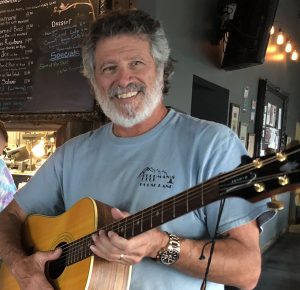
Micheal Feldman plays at venues that feel safe.
Feeling safe is important for Micheal Feldman. Feldman is a musician and restauranteur. He’s also a retired biochemist—which makes him somewhat of an authority in the music scene circles.
Despite being of an age that puts him in a high-risk category, Feldman has been playing acoustic gigs at clubs and brewpubs for many months.
“There are some places I won’t play,” says Feldman, but if the establishment follows proper COVID guidelines and I feel safe, I will play there.”
…if the establishment follows proper COVID guidelines and I feel safe, I will play there.”
Chaos provides opportunity
Crespo thinks this pandemic may provide a golden opportunity for local music. He noted that large venues aren’t operating right now and may not open for many months or even through 2021. National acts—that would normally compete against local acts—just aren’t happening.
That leaves small venues as the only outlet for live music, which could be a huge boon for local bands struggling to be heard above the noise.
Someone once said that chaos provides opportunity for those in the shadows. Bands playing live, right now, are getting more attention from fans who might normally focus on touring acts.
Add to this the fact that a lot bands are not even rehearsing, recording or releasing new music. All told, the most active bands are getting more attention on social media and traditional media outlets like Salt Lake Bard.
…the most active bands are getting more attention on social media and traditional media…”
Opportunity could reach beyond state borders, as potential fans in regions without live music could start following Utah artists,
The path forward
As we moved past a bitter November election, we heard a lot about how we all need to come together as a nation. Unfortunately, much of that was just virtue signaling—lip service from people with little in common and less reason to actually come together.
The local music scene, however, shares something wonderful in common…that thing Middleton reminds us about which has always united us in the past. Coming together and supporting the return of live music would benefit all of us–including those doing well and those still in the shadows…waiting their turn in the spot light.
We have an opportunity to lead the music world by example—to join together as one music scene. But it will require more than just lip service. It will require empathy and the understanding that we are all victims—at some level—of the misinformation which has us all bouncing around like so many pingpong balls.
Lastly, we need to have patience. Coming back full circle—I’ll end this piece with a music video for the song Patience, off the Andrew W. Boss 2020 release, The Arrival.

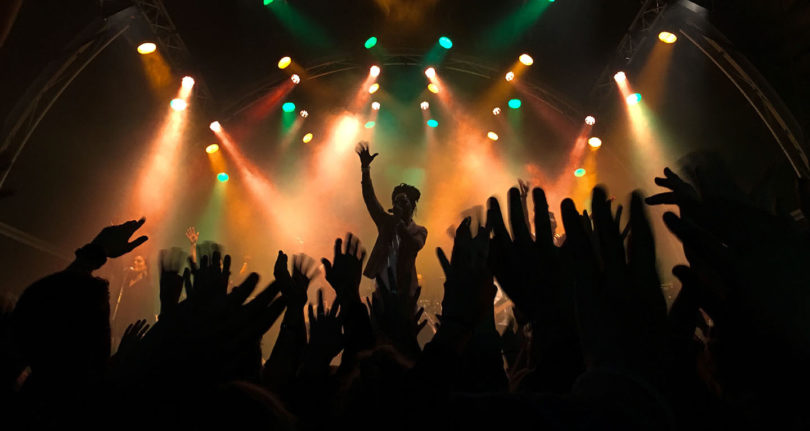
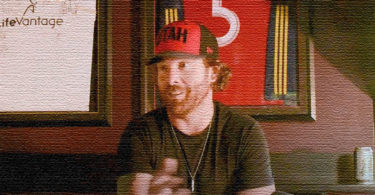
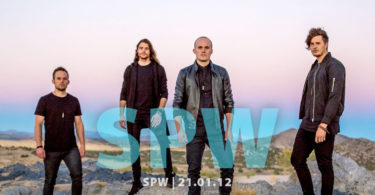

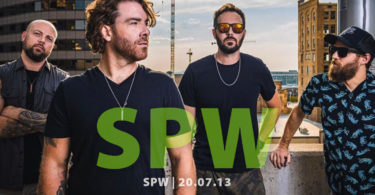
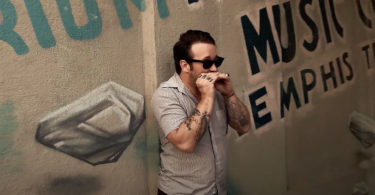
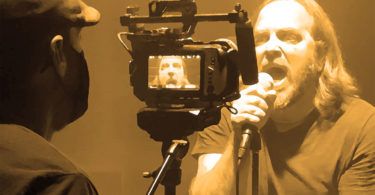
Leave a Comment
You must be logged in to post a comment.